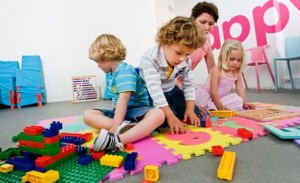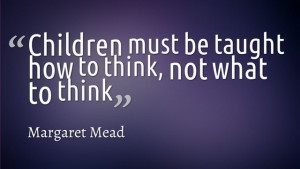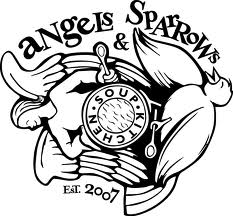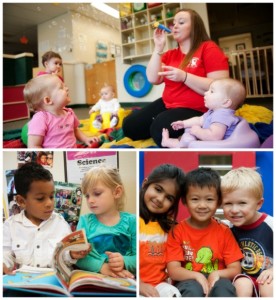Ages and Stages: Individual Differences

Developmental milestones give a general idea about what to expect from children of different ages. However, there will always be differences between individual children. Some children begin to walk at 10 months, some at 15 months. Some toddle along quickly and smoothly, getting the “hang of it” right away. Others fall down a lot, hesitate, or even give up for a few days. Some children talk before they are 2, others talk very little before they are 3 or so. Some will always be quiet people. Some abilities become clear in one child, but may never be very strong in another. Recognize the individual in the child and look for differences based on the following:
SENSE OF SECURITY
Some children need more consistency, more reassurance, and more confidence and trust-building than others. Insecurity sometimes can cause a child to withdraw or behave aggressively.
ACTIVITY LEVEL
Some children need more active play than others. They need the opportunity to move around, jump, run, and bounce many times throughout the day. Other children need more quiet time or more rest.
RESPONSE TO STIMULATION
Children are inherently different in their tolerance to noise, activity, visual stimulation, or changes in the environment. An environment that is sensitive to this need in children will provide interesting activities as well as a quiet place to get away from the action.
THINKING STYLE
Some children think quietly through possible solutions to a problem; others push in and try the first idea that occurs to them. Some children are interested in experimenting to find out how objects work; others choose to ask friends or adults for help.
Developmental guidelines should be used as a general rule of thumb. In your work with children, do not confuse earlier or faster development with better development. Early talking by a 1-year-old does not mean that the child will be a chatterbox or a brilliant conversationalist at age 10. Later talking may mean that a toddler is putting more energy into physical growth and motor exploration right now.
Development or the lack of it that falls outside the normal range may indicate a problem that requires attention. You may need to help parents recognize possible problems and special needs, such as poor vision or hearing. Familiarity with developmental norms and with community resources can assist you in helping parents seek professional advice about developmental questions.
Reprinted with permission from National Network for Child Care -NNCC. Oesterreich, L. (1995). Ages & stages – individual differences. In L. Oesterreich, B. Holt, & S. Karas, Iowa family child care handbook [Pm 1541] (pp. 191-192). Ames, IA: Iowa State University Extension
Important Reminder: We will be closed February 15th for President’s Day; however our staff will be attending our annual professional development day. We pride ourselves on the continuing education for our staff to maintain our quality.
Upcoming Events:
On Friday, February 5th show your support by wearing your favorite sports team attire. Let’s start the super bowl weekend with a day full of fun! In order to participate in this fun event, you must donate at least 1 canned food item to the Angels and Sparrows Soup Kitchen.
All canned food items for Angel and Sparrows are due February 12th.
Thank you!
Inspirational Quotes for parents

Volunteer Spotlight:




We would like to thank Erica Mayo for the delicious hot chocolate! The teachers and staff loved it. We truly appreciated it.
Angels and Sparrows
Beginning Tuesday, January 26th and ending Friday, February 12th our Chesterbrook Academy’s will hold a canned food drive to support the Angels and Sparrow’s Soup Kitchen. This kitchen provides breakfast in the summer to over 1,000 families and 80 children a day who would otherwise have no meal. After the holiday season their pantry becomes depleted. The items below things that they used on a daily basis:
- Angels and Sparrows Needs List
- Canned stocks of all kinds (chicken, beef, vegetable)
- Canned fruit
- Canned vegetables (mixed veggies, corn, tomatoes, beans, cream soups of all kinds)
- Coffee
- Tea, gallon size
- Paper products (dessert plates, soup bowls, paper towels)
- Gift cards to any grocery store
- Freezer bags (gallon, quart)
Please drop these items off in the lobby or outside either Pk or Pk-2 classroom doors.
Thank you!
I want to thank each of you for the participation in our recent fundraisers! Participation in our fundraising events is optional for all families. We feel that by offering a wide range of fundraisers, families can pick the ones that work for their family!
Our Yankee Candle fundraiser was one of the most successful we have offered this year and Little Caesar’s was our most successful last year. The companies we work with are nationally recognized brands, are financially reputable and have offered a good return for our time and efforts.
With the sales from our fundraisers we are able to purchase extra supplies for the classroom. Recently we purchased new gliders for the infant room, as well as additional chairs and cots for our classrooms.
If you have ideas for any local fundraisers, please let me know and I will research the idea to see if we can offer it.
Thank you for supporting our school!
Parent Reminders
-
Please be sure to wash your child’s hands upon entering the classroom.
-
If your child has received any new immunizations, please make sure we have an updated record in your child’s file.
-
All outside food must be store bought.
-
Inform the front office if your emergency contact information changes.
-
Please sign your child in and out each day.
-
Label all your child’s belongings.
-
Please put appropriate foot wear on your child for active play.
It is time for our FALL ANCILLARY PROGRAMS





Monday Morning: Daisy Dance is a ballet, tap and a creative movement dance program designed to teach children a life long love of movement and provide a foundation for all dance genres. Please click here for the registration form. You can add dance at the beginning of each month.
Tuesday Morning: Preschool Music Adventure is an original approach that successfully engages active preschoolers in musical activities, in order to enhance their overall development. We are very excited about this new music program. We will have a new music session starting in January 26th .
Wednesday Afternoon: T.O.T (Teams of Tomorrow) is an awesome training program that focuses on basketball handling and dribbling skills. The onsite classes are fun, educational and active. Please click here to access the registration form.
Thursday Morning: Soccer Shots is a popular non-competitive youth soccer program. This program teaches confidence, fun, character, teamwork, coordination and imagination. Our next session will begin March 3rd, click here for the registration forms.
Friday Morning: King Tiger Tae Kwon Do is taught according to individual needs and levels of skills. Students begin to establish, and actually achieve, personal goals. Students learn that, by setting realistic goals and applying dedication and hard work, anything is possible. They develop confidence! The virtues of Respect, Concentration, Discipline, and Motivation are the characteristics of a truly confident individual. New sessions will be announced at a later date.
Helping Your Preschooler Develop Positive Friendship Skills
Are you puzzled by some of your child’s social behaviors? Have you noticed that your toddler doesn’t interact with other children very often? Does your three-year-old get frustrated when a classmate won’t play with him? Will your four-year-old only play with her best friend?
These are all normal social behaviors for preschoolers. Learning how to develop friendships is a lifelong process. Children’s social behaviors evolve from smiling and cooing at others, to engaging in parallel play, to eventually forming friendships and playing together.
Below are ways we help develop friendships in the classroom, as well as ideas for you and your child to do at home.
INFANTS:
In the classroom: Before they can communicate verbally, infants build connections by smiling, cooing and crying. By two months old, they might turn toward other infants, and by twelve months, they begin to imitate their peers. Teachers help facilitate this relationship by sitting infants near each other during activities such as story time and tummy time.
At home: Even though infants don’t really play with one another, they still benefit from “play dates” with other infants. Sit your infant face-to-face with another infant or in close proximity to an older sibling, and provide each child separate toys. Note when your infant watches the other child and what captures his attention.
Recommended reading: Friends by Helen Oxenbury and Let’s Play by Leo Lionni
TODDLERS (ages 1-2):
In the classroom: Many young children tend to engage in “parallel play.” They play near other children, but each child is doing something different. This is a natural phase of development. As children get older, they begin to enjoy more shared activities with their peers. For example, they might enjoy splashing their hands at the water table with others, looking at books while sitting close to a friend, and dancing to music with their classmates.
At home: Invite another parent and child to your home for a play date. Blocks, balls, dress up clothes and toy kitchen sets are great toys for children at this age. Don’t force them to play with each other. Instead, let the children decide on the level of interaction.
Recommended reading: Do You Want to be My Friend? by Eric Carle and I Can Share by Karen Katz
BEGINNERS (ages 2-3):
In the classroom: In the Beginner classroom, teachers refer to classmates as “friends.” Students learn about personal space and begin to practice good manners by saying please and thank you.
At home: Model positive behaviors while playing with your child. Say “I’m going to roll the ball to you. Can you please roll the ball back to me?” Afterward, say “Thank you. You are being a good friend.”
Recommended reading: How Do Dinosaurs Play with Their Friends? by Jane Yolen and Let’s be Friends by P. K. Hallinan
INTERMEDIATES (ages 3-4):
In the classroom: Between ages three and four, children attempt to understand social situations, but often do so from an egocentric point of view. They need adult guidance to help them navigate peer conflict and model appropriate friendship-making behaviors. Small group activities help children learn how to follow directions, take turns and develop friendships.
At home: Ask your child about their friends and what games they played together. If he says, “Andrew didn’t play with me today. He’s mean,” you could say, “Andrew may have wanted to play a different game today. Maybe you can play together tomorrow. What does Andrew like to play?”
Recommended reading: Just My Friend and Me by Mercer Mayer and Llama Llama Time to Share by Anna Dewdney
PRE-K/PRE-K2 (ages 4-5)
In the classroom: Friendship in Pre-K and Pre-K2 is usually reciprocal and deliberate as children become more skilled in social interactions and look for peers with shared interests. Our character education program reinforces friendship making skills using songs, games, books and brain-builder activities to nurture skills such as collaboration, understanding feelings and resolving conflicts.
At home: Bring your child to events that include multiple children, such as birthday parties, or encourage your child to play a board game that requires multiple players. Ask him to introduce himself to the other children, or encourage him to play the game taking turns. If you notice frustration from your child, say, “In order to play the game, we all have to play together.”
Recommended reading: Frog and Toad are Friends by Arnold Lobel and A Splendid Friend, Indeed by Suzanne Bloom
Don’t be concerned about the number of friends your child has, as it is more about quality than quantity. Each child will develop friendships at his own pace. What matters most is the development of social skills such as collaboration and problem-solving, which will help him transition into elementary school and beyond.
– Lauren Starnes, PhD – Director of Early Childhood Education

February Newsletter
From the Principal’s Desk:
Ages and Stages: Individual Differences
Developmental milestones give a general idea about what to expect from children of different ages. However, there will always be differences between individual children. Some children begin to walk at 10 months, some at 15 months. Some toddle along quickly and smoothly, getting the “hang of it” right away. Others fall down a lot, hesitate, or even give up for a few days. Some children talk before they are 2, others talk very little before they are 3 or so. Some will always be quiet people. Some abilities become clear in one child, but may never be very strong in another. Recognize the individual in the child and look for differences based on the following:
SENSE OF SECURITY
Some children need more consistency, more reassurance, and more confidence and trust-building than others. Insecurity sometimes can cause a child to withdraw or behave aggressively.
ACTIVITY LEVEL
Some children need more active play than others. They need the opportunity to move around, jump, run, and bounce many times throughout the day. Other children need more quiet time or more rest.
RESPONSE TO STIMULATION
Children are inherently different in their tolerance to noise, activity, visual stimulation, or changes in the environment. An environment that is sensitive to this need in children will provide interesting activities as well as a quiet place to get away from the action.
THINKING STYLE
Some children think quietly through possible solutions to a problem; others push in and try the first idea that occurs to them. Some children are interested in experimenting to find out how objects work; others choose to ask friends or adults for help.
Developmental guidelines should be used as a general rule of thumb. In your work with children, do not confuse earlier or faster development with better development. Early talking by a 1-year-old does not mean that the child will be a chatterbox or a brilliant conversationalist at age 10. Later talking may mean that a toddler is putting more energy into physical growth and motor exploration right now.
Development or the lack of it that falls outside the normal range may indicate a problem that requires attention. You may need to help parents recognize possible problems and special needs, such as poor vision or hearing. Familiarity with developmental norms and with community resources can assist you in helping parents seek professional advice about developmental questions.
Reprinted with permission from National Network for Child Care -NNCC. Oesterreich, L. (1995). Ages & stages – individual differences. In L. Oesterreich, B. Holt, & S. Karas, Iowa family child care handbook [Pm 1541] (pp. 191-192). Ames, IA: Iowa State University Extension
Important Reminder: We will be closed February 15th for President’s Day; however our staff will be attending our annual professional development day. We pride ourselves on the continuing education for our staff to maintain our quality.
Upcoming Events:
On Friday, February 5th show your support by wearing your favorite sports team attire. Let’s start the super bowl weekend with a day full of fun! In order to participate in this fun event, you must donate at least 1 canned food item to the Angels and Sparrows Soup Kitchen.
All canned food items for Angel and Sparrows are due February 12th.
Thank you!
Inspirational Quotes for parents
Volunteer Spotlight:
We would like to thank Erica Mayo for the delicious hot chocolate! The teachers and staff loved it. We truly appreciated it.
Angels and Sparrows
Beginning Tuesday, January 26th and ending Friday, February 12th our Chesterbrook Academy’s will hold a canned food drive to support the Angels and Sparrow’s Soup Kitchen. This kitchen provides breakfast in the summer to over 1,000 families and 80 children a day who would otherwise have no meal. After the holiday season their pantry becomes depleted. The items below things that they used on a daily basis:
Please drop these items off in the lobby or outside either Pk or Pk-2 classroom doors.
Thank you!
I want to thank each of you for the participation in our recent fundraisers! Participation in our fundraising events is optional for all families. We feel that by offering a wide range of fundraisers, families can pick the ones that work for their family!
Our Yankee Candle fundraiser was one of the most successful we have offered this year and Little Caesar’s was our most successful last year. The companies we work with are nationally recognized brands, are financially reputable and have offered a good return for our time and efforts.
With the sales from our fundraisers we are able to purchase extra supplies for the classroom. Recently we purchased new gliders for the infant room, as well as additional chairs and cots for our classrooms.
If you have ideas for any local fundraisers, please let me know and I will research the idea to see if we can offer it.
Thank you for supporting our school!
Dear Families,
We are still continuing to pilot our new Tadpoles system. We have received positive feedback from parents and would love to continue to hear any feedback.
Thank you for your continued support and we are grateful for the opportunity to pilot this program for our company.
Parent Reminders
It is time for our FALL ANCILLARY PROGRAMS
Monday Morning: Daisy Dance is a ballet, tap and a creative movement dance program designed to teach children a life long love of movement and provide a foundation for all dance genres. Please click here for the registration form. You can add dance at the beginning of each month.
Tuesday Morning: Preschool Music Adventure is an original approach that successfully engages active preschoolers in musical activities, in order to enhance their overall development. We are very excited about this new music program. We will have a new music session starting in January 26th .
Wednesday Afternoon: T.O.T (Teams of Tomorrow) is an awesome training program that focuses on basketball handling and dribbling skills. The onsite classes are fun, educational and active. Please click here to access the registration form.
Thursday Morning: Soccer Shots is a popular non-competitive youth soccer program. This program teaches confidence, fun, character, teamwork, coordination and imagination. Our next session will begin March 3rd, click here for the registration forms.
Friday Morning: King Tiger Tae Kwon Do is taught according to individual needs and levels of skills. Students begin to establish, and actually achieve, personal goals. Students learn that, by setting realistic goals and applying dedication and hard work, anything is possible. They develop confidence! The virtues of Respect, Concentration, Discipline, and Motivation are the characteristics of a truly confident individual. New sessions will be announced at a later date.
Helping Your Preschooler Develop Positive Friendship Skills
Are you puzzled by some of your child’s social behaviors? Have you noticed that your toddler doesn’t interact with other children very often? Does your three-year-old get frustrated when a classmate won’t play with him? Will your four-year-old only play with her best friend?
These are all normal social behaviors for preschoolers. Learning how to develop friendships is a lifelong process. Children’s social behaviors evolve from smiling and cooing at others, to engaging in parallel play, to eventually forming friendships and playing together.
Below are ways we help develop friendships in the classroom, as well as ideas for you and your child to do at home.
INFANTS:
In the classroom: Before they can communicate verbally, infants build connections by smiling, cooing and crying. By two months old, they might turn toward other infants, and by twelve months, they begin to imitate their peers. Teachers help facilitate this relationship by sitting infants near each other during activities such as story time and tummy time.
At home: Even though infants don’t really play with one another, they still benefit from “play dates” with other infants. Sit your infant face-to-face with another infant or in close proximity to an older sibling, and provide each child separate toys. Note when your infant watches the other child and what captures his attention.
Recommended reading: Friends by Helen Oxenbury and Let’s Play by Leo Lionni
TODDLERS (ages 1-2):
In the classroom: Many young children tend to engage in “parallel play.” They play near other children, but each child is doing something different. This is a natural phase of development. As children get older, they begin to enjoy more shared activities with their peers. For example, they might enjoy splashing their hands at the water table with others, looking at books while sitting close to a friend, and dancing to music with their classmates.
At home: Invite another parent and child to your home for a play date. Blocks, balls, dress up clothes and toy kitchen sets are great toys for children at this age. Don’t force them to play with each other. Instead, let the children decide on the level of interaction.
Recommended reading: Do You Want to be My Friend? by Eric Carle and I Can Share by Karen Katz
BEGINNERS (ages 2-3):
In the classroom: In the Beginner classroom, teachers refer to classmates as “friends.” Students learn about personal space and begin to practice good manners by saying please and thank you.
At home: Model positive behaviors while playing with your child. Say “I’m going to roll the ball to you. Can you please roll the ball back to me?” Afterward, say “Thank you. You are being a good friend.”
Recommended reading: How Do Dinosaurs Play with Their Friends? by Jane Yolen and Let’s be Friends by P. K. Hallinan
INTERMEDIATES (ages 3-4):
In the classroom: Between ages three and four, children attempt to understand social situations, but often do so from an egocentric point of view. They need adult guidance to help them navigate peer conflict and model appropriate friendship-making behaviors. Small group activities help children learn how to follow directions, take turns and develop friendships.
At home: Ask your child about their friends and what games they played together. If he says, “Andrew didn’t play with me today. He’s mean,” you could say, “Andrew may have wanted to play a different game today. Maybe you can play together tomorrow. What does Andrew like to play?”
Recommended reading: Just My Friend and Me by Mercer Mayer and Llama Llama Time to Share by Anna Dewdney
PRE-K/PRE-K2 (ages 4-5)
In the classroom: Friendship in Pre-K and Pre-K2 is usually reciprocal and deliberate as children become more skilled in social interactions and look for peers with shared interests. Our character education program reinforces friendship making skills using songs, games, books and brain-builder activities to nurture skills such as collaboration, understanding feelings and resolving conflicts.
At home: Bring your child to events that include multiple children, such as birthday parties, or encourage your child to play a board game that requires multiple players. Ask him to introduce himself to the other children, or encourage him to play the game taking turns. If you notice frustration from your child, say, “In order to play the game, we all have to play together.”
Recommended reading: Frog and Toad are Friends by Arnold Lobel and A Splendid Friend, Indeed by Suzanne Bloom
Don’t be concerned about the number of friends your child has, as it is more about quality than quantity. Each child will develop friendships at his own pace. What matters most is the development of social skills such as collaboration and problem-solving, which will help him transition into elementary school and beyond.
– Lauren Starnes, PhD – Director of Early Childhood Education